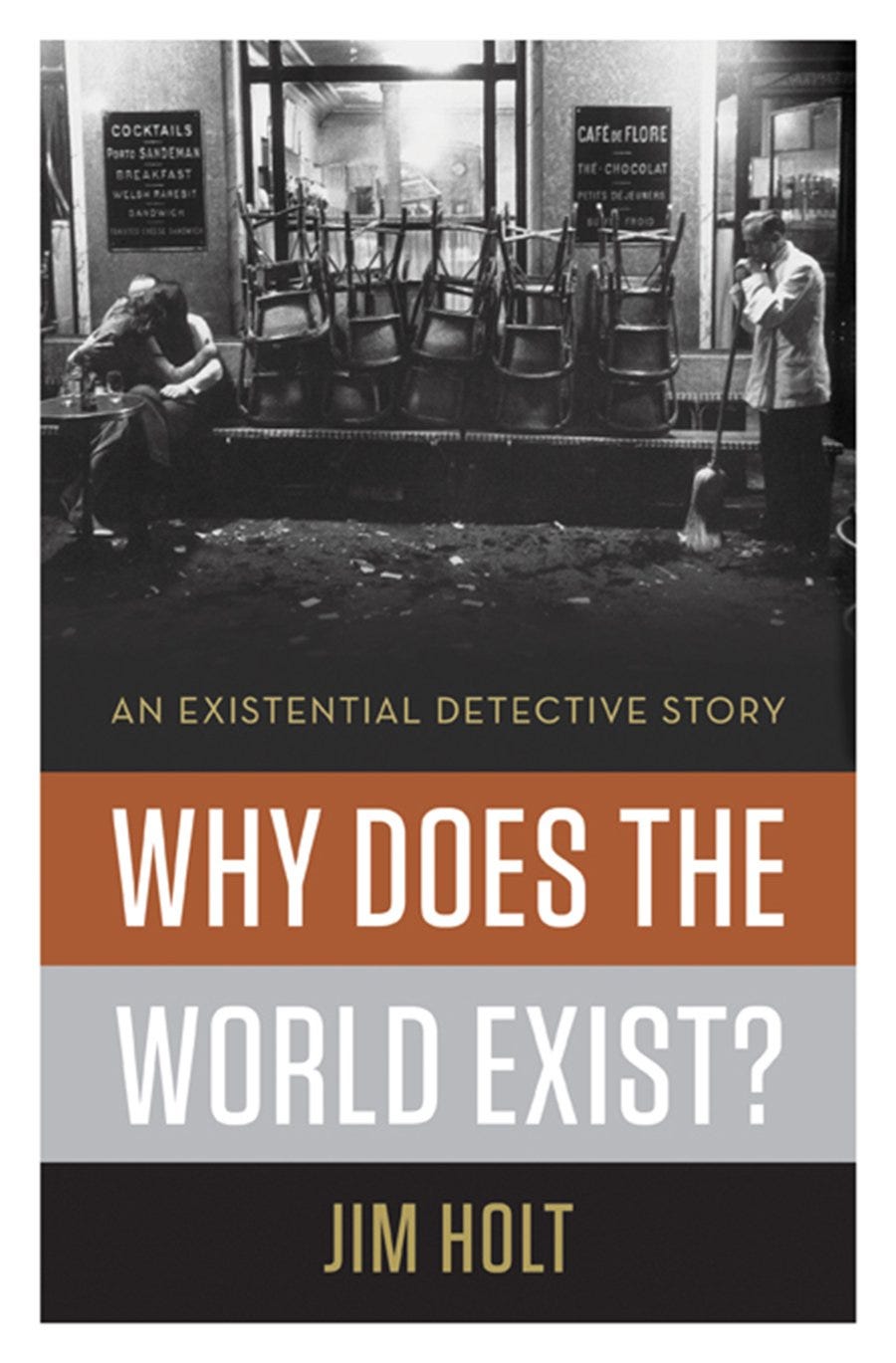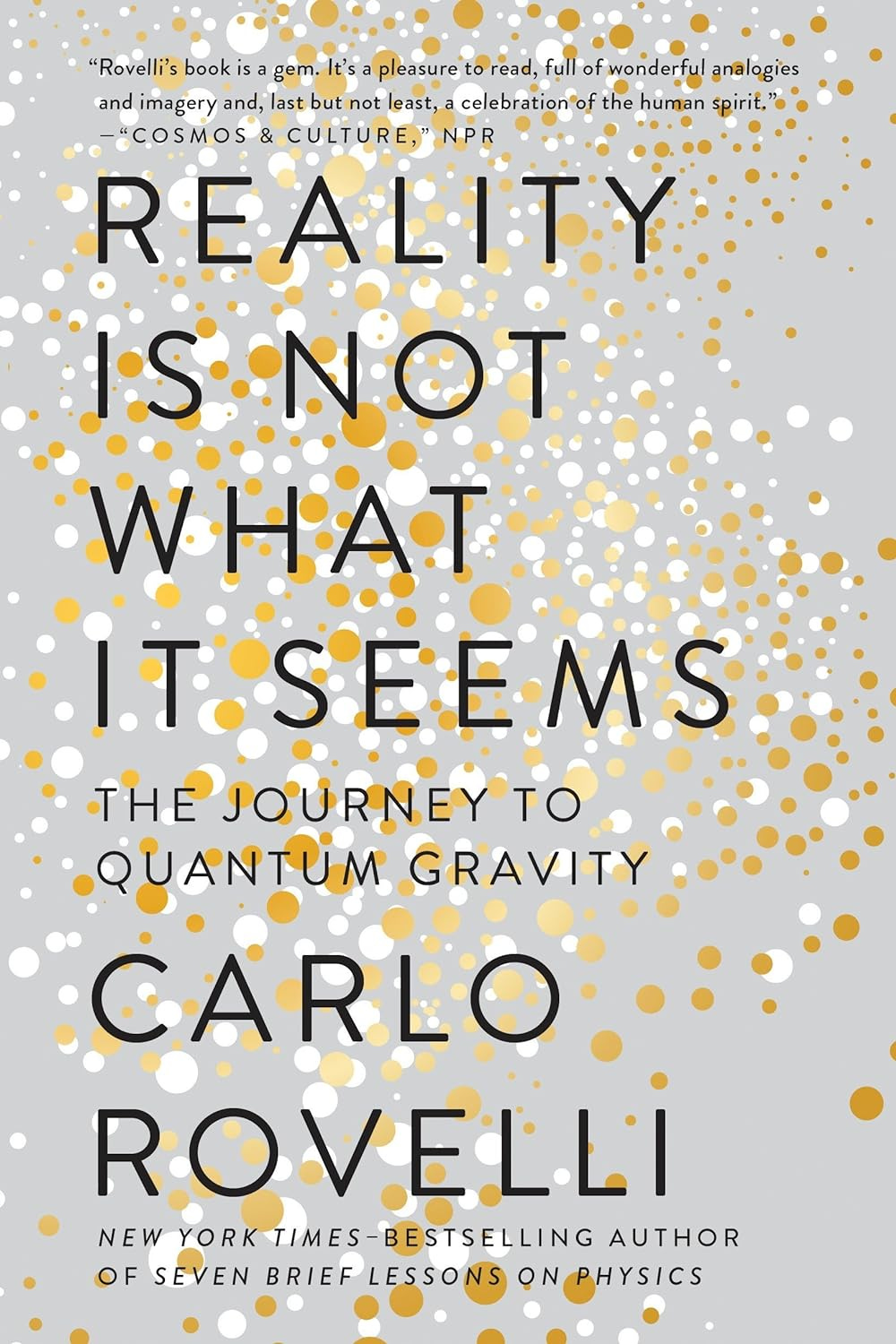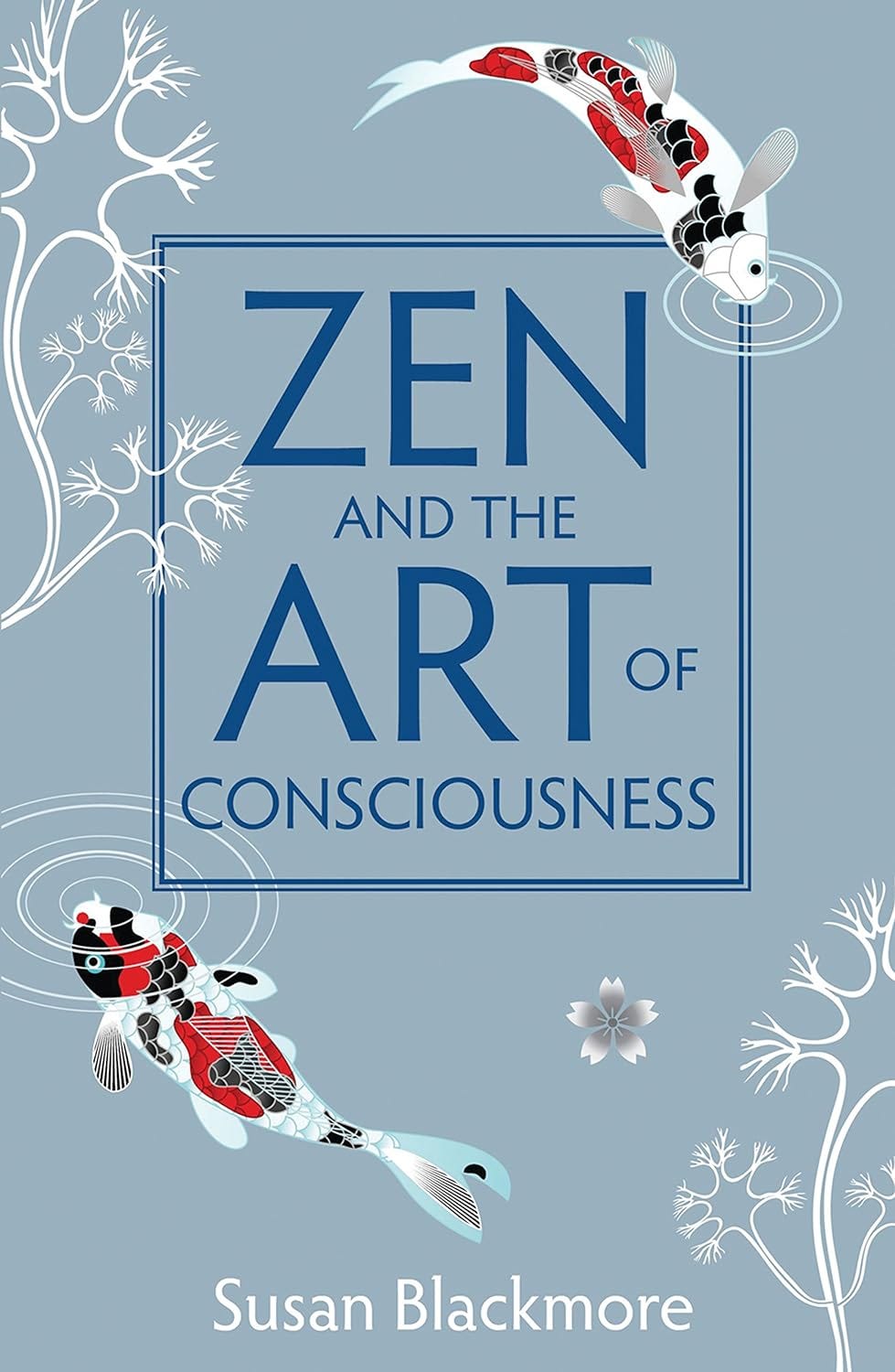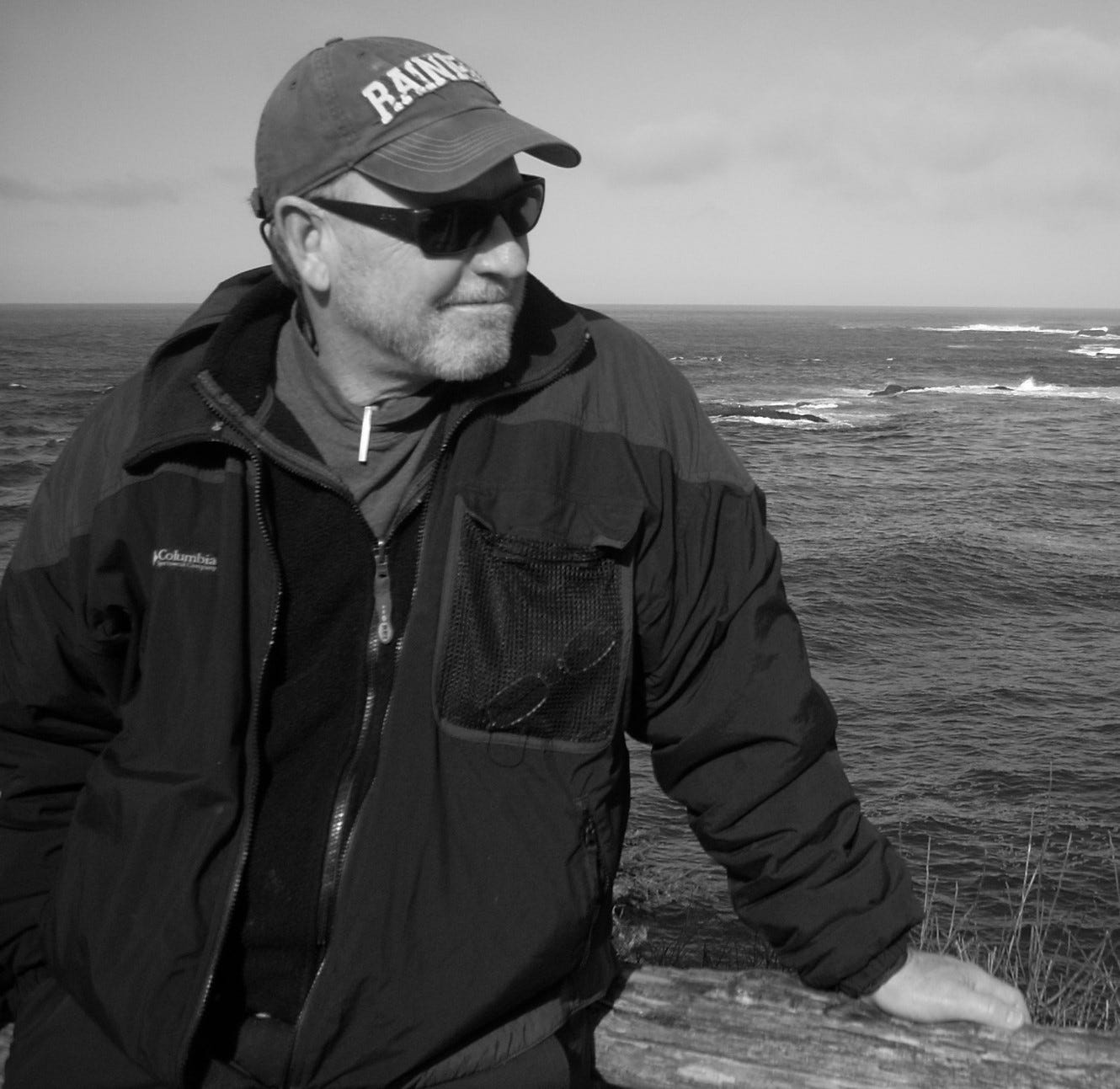Reality/Nothingness/Quantum Foam
If It Is What It Is, What Is It?
“The answer to the age-old question of why there is something instead of nothing appears to be that nothing is unstable.”
—Frank Wilczek, Nobel Laureate in Physics
[Note: Put cursor over footnotes for pop-up.]
A Very Short Introduction to Today’s Post:
I was not a math kid.
We had two sections of algebra, one for the smarties, the other for deadbeats like me. I’d done so poorly in Geometry that I was tutored in algebra over the summer, which led to the following: When I aced the first couple of quizzes in Algebra for Dummies, I was was kicked upstairs to sit among the math-nerds, a move that coincided precisely with the end of what I knew from the tutoring. Lennie Hassler (also Director of Athletics) held our classes in a room at the new gym. I have a distinct memory of light shafts angling through the slit windows up along the acoustic-tile ceiling as I realized, having scanned the problems on the test before me, that I could solve none. My paper came back with a 7 (out of 100), partial credit for one answer.1
Nor was I a science kid.
Dissecting the cow’s eyeball in sophomore biology . . . I didn’t puke or anything, but it was formative: I did not (and still do not) want to look at the insides of bodies. Period. A year later, I had a non-AP physical science class—parts of atoms, fundamental forces, and so on—and it held my attention surprisingly well (though I could not have imagined that in my fifties I’d be reading books on physics, cosmology, the nature of reality, consciousness, and the like).
Three TV series were stepping stones: Jacob Bronowski’s, The Ascent of Man (1973), James Burke’s, Connections (1978-79)2, and Carl Sagan’s, Cosmos (1980). They were chock full of science fact, but were really about the history of human curiosity. They were about the connectedness of ideas, the thrill of figuring things out, and the cost of willful ignorance.3 4
Today’s post is a collection of physics/nature-of-reality books I’ve read in the not-too-distant-past. Does this seem odd for a fiction guy? I know—I wouldn’t have guessed it, either. But it fascinates me (not to mention testing my ability to absorb head-bangingly perplexing ideas/processes/arguments). A hundred times, I’ve read about the double-slit experiment—it’s old hat by now, but it never gets less strange. I know that lots of people couldn’t care less about this stuff; I get that, I get how coping with the twists and turns of our human experience is complex enough. Yet, my inner guy keeps going: What is it? What’s the reality? How can there not be a bottom-most turtle?
The Reading Challenge:
No reading challenge this time. Just spend a little time with the list, look up a few of these, find one you’d like to try, read it. Or if not these books, books like these. Whaddya have to lose?5
A Very Short Note About Very Short Introductions:
University of Oxford Press publishes a series called Very Short Introductions, each about 175 pp., written by an expert, aimed at the curious layperson. I’ve downloaded maybe a dozen to my Kindle [most @ $6.99] and I’ve yet to find a dud. There are roughly 800 topics, from African Religions, Ancient Assyria, and Animal Rights to Typography, Viruses, and Zionism.
[Check them out: https://global.oup.com/academic/content/series/v/very-short-introductions-vsi/?lang=en&cc=us]
They are scattered below by subject.
Physics:
The Quantum Universe: (And Why Anything That Can Happen, Does), Brian Cox & Jeff Forshaw (2012)
The Hidden Reality: Parallel Universes and the Deep Laws of the Cosmos, Brian Greene (2011)
Particle Physics: A Very Short Introduction, Frank Close (2004/2024)
The Fabric of the Cosmos: Space, Time and the Texture of Reality, Brian Greene (2004)
Quantum Theory: A Very Short Introduction, John Polkinghorne (2002)
The Universe in a Nutshell, Stephen Hawking (2001)
Reality/Nothingness:
Decoding Reality, Vlatko Vedral (2018)
Reality Is Not What It Seems, Carlo Rovelli (2016)
Why Does the World Exist?: An Existential Detective Story, Jim Holt (2012)
A Universe From Nothing: Why There Is Something Rather than Nothing, Lawrence M. Krauss (2012)
Reality: A Very Short Introduction, Jan Westerhoff (2012)
Nothing: A Very Short Introduction, Frank Close (2009)
Zero: The Biography of a Dangerous Idea, Charles Seife (2000)
De Rerum Natura [On the Nature of Things], Lucretius (written c. 55 BCE) (trans. by W. H. D. Rouse, rev. by Martin F. Smith, 1992). Loeb Classical Library Edition
Consciousness/The Mind:
Conscious: A Brief Guide to the Fundamental Mystery of the Mind, Annaka Harris (2019)
Consciousness: A Very Short Introduction, Susan Blackmore (2018)
Thoughts Without a Thinker: Psychotherapy from a Buddhist Perspective, Mark Epstein (2013)
Zen and the Art of Consciousness, Susan Blackmore (2011)8
What the Buddha Taught, Walpola Rahula (1959, revised edition 1974)
Creation:
The God Problem: How a Godless Universe Creates, Howard Bloom (2016)9
Sync: How Order Emerges from Chaos In the Universe, Nature, and Daily Life, Steven H. Strogatz (2012
Ongoing Projects:
Birth Year Project:
You supply your birth year, I respond with a short list of books published that year—the popular/well-known titles first, then some books I'd recommend. If your year's already been done, I'll do an update. The seven most-recent years (and all further ones) are on their own shelf, accessed via the menu bar. Earlier ones are scattered among the regular posts toward the start of the Stack. We’ve done 14 years altogether, between 1946 and 1978.
Extra credit: You read one of the books (ideally one you're unfamiliar with), then tell me what you thought. If we get enough of these, I'll aggregate and post.
Shelter from the Storm:
The concept: Each of us has a small cache of books we know and esteem that even other readers like us likely don't know—our discoveries, books we feel a special need to keep out of the clutches of oblivion. I invite you to recommend one.
The details:
One per subscriber [for now].
Tell us why, in one sentence.
When there's enough for a list, I'll post.
You can have your name attached, or not—up to you.
And, quick reminder: Every post comes with an addition to short story Hall of Fame.
Finally: Thanks for supporting this Stack! Y’all are champs!
You’re wondering: How did he ever get into college? Bizarrely, the teacher of the Deadbeat Section wrote the final exam for both sections; I passed.
Burke had a later series I also loved: The Day the Universe Changed (1985).
I haven’t re-watched these shows, but I can’t imagine they wouldn’t still be compelling despite the passage of time.
Here are new editions of the companion books:
Bronowski: https://www.amazon.com/Ascent-Man-Jacob-Bronowski/dp/1849901155/ref=sr_1_1?crid=HHF80LIZBJ9I&keywords=the+ascent+of+man+bronowski&qid=1695601276&sprefix=the+ascent+of+man%2Caps%2C170&sr=8-1
Burke: https://www.amazon.com/Connections-James-Burke/dp/0743299558/ref=sr_1_1?crid=2LWGYFG8QWTB5&keywords=james+burke+connections&qid=1695601372&sprefix=james+burke%2Caps%2C144&sr=8-1
Sagan: https://www.amazon.com/Cosmos-Carl-Sagan-2013-12-10/dp/B01NANDGAB/ref=sr_1_1?crid=3UQ3VJXVQDEEZ&keywords=carl+sagan+cosmos+series&qid=1695601433&sprefix=cosmos+sagan%2Caps%2C144&sr=8-1
An indelible image: Jacob Bronowski, in suit and brogans, wading into a pond at Auschwitz, letting the ashy muck from the bottom stream through his fingers, telling us this is what you get when people think they know the answer to everything, what he calls the terrible certainty.
Except, you know, your whole sense of reality.
Rovelli: Besides his work as a physicist, he’s written short popular books—pithy meditations/explanations on the ideas of physics—see also, The Order of Time (2017).
https://en.wikipedia.org/wiki/Carlo_Rovelli
Blackmore: As you can see, she wrote one of the VSIs. This book is a reworking of an earlier book called Ten Zen Questions. It’s about the nature of consciousness and how to study/understand it, but it’s more like a memoir of her meditation practice, time spent at retreats—she takes us through her . . . well, I almost said journey [yikes! shoot me!] . . . her thought process, her roadblocks/insights, etc. She’s engaging and enjoyable to listen to. I’ve read this twice.
Check her out at: https://www.susanblackmore.uk/
The God Problem: I used to teach at the Pacific University MFA Program in Writing, as I’ve mentioned before. At one residency, I gave an entire craft talk on this book. [I’m consider-ing posting that talk, so I’ll keep it short here.]
Here’s how I introduced it then:
[The book is] about the history of science and mathematics, starting with Babylonians counting barleycorns, and building up to the idea that unimaginable complexity can emerge from a small number of ur principles—simple rules or axioms. It’s a long and utterly fascinating, brain-thrashing work.
I want to look at just one of its ideas, which relates to writing and assumptions. The history of science, Bloom says, is a history of progress spurting ahead, then stalling. Often things don’t move ahead again until a major axiom is flipped.
He begins with what he terms five heresies. This is the first heresy: A does not equal A.
What can this possibly mean?
I went on to apply the first heresy to the act of writing. Frustratingly, I don’t have the space to unpack this chain of thought here, but I promise to come back to it another day.









I used to show The Day the Universe Changed to my students. I LOVE that series, but also the others you mention.
Not quite in the same philosophical class, but I recommend The World Without Us by Alan Weisman. If humans were suddenly gone, what would happen in this world? Backed by careful research he details how various environments would change. (New York subways would flood in a day, the forests would all come back in a century, and the nuclear waste from reactors would poison much of the earth for longer than we want to believe.)